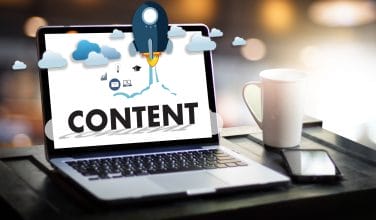Why Content Is Important
This article was published on February 27, 2023
Categorized in: Content
You know content is important, but if you don’t realize how important, you might not take it as seriously as you should. If you consider content a nice add-on, but not something that needs to be consistent, you could be missing a big opportunity to grow your business. Content is what helps your target audience keep up-to-date on the happenings of your business and tells them what you have to offer them. Posting on your business website and social media is great, but content can play an even bigger role in your business. Here’s how and why content is so very important:
add-on, but not something that needs to be consistent, you could be missing a big opportunity to grow your business. Content is what helps your target audience keep up-to-date on the happenings of your business and tells them what you have to offer them. Posting on your business website and social media is great, but content can play an even bigger role in your business. Here’s how and why content is so very important:
Newsletters Depend on Content
If you don’t yet have a newsletter, now is the time to start one. A newsletter could become part of your marketing strategy. It gives you a reason to reach out to people who are interested in what new services, products, promotions, sales, and service updates you have to offer them. Newsletters can help to improve your click-through rate, help you gain new followers and customers, and improve conversions. When creating content for a newsletter, think like your audience. Create content that they want to read.
Improve Your Social Media Efforts
While social media can be used for self-promotion now and then, it’s important that you offer real value to your followers in terms of high-quality content. By offering content that your audience wants, you will attract more followers and more customers, which will lead to increased conversions; customer feedback; and increased brand awareness. By staying active on social media and providing valuable content to your followers, you will remain top of mind. Don’t forget that social media posts can drive people to your website. Whenever you publish new content on your blog or website, you should share it on social media.
Content Promotes Lead Nurturing
When it comes to content marketing, delivering valuable content to your audience is key. By creating content that is personalized and relevant to your target audience, you will build a relationship with them. Keep in mind that you need to create content for each stage of the buying cycle. This includes creating different type of content. Let’s explore this further:
- Awareness Phase: Content that will appeal to this phase of the buying cycle would relate to their problem and how you have a solution. You want to educate this portion of your audience, so content such as ebooks, white papers, and blogs with tips and how-tos will be appealing.
- Evaluation Phase: For this phase of the buying cycle, you want to showcase how your products or services will help them with their needs. Examples of this type of content includes video demonstrations and case studies.
- Purchase Phase: During the purchase phase, your audience will be seriously considering making a purchase thanks to your content from the previous two phases’ content. They may make a purchase at this point or they may ask for a free trial.
In order to nurture leads, you need to make sure you’re set for success. You want to post content on your blog regularly, but if this is all you’re sharing on social media, the feedback may be lackluster. Use social media to connect with your followers. Engage with them by asking questions and answering any questions they have.
You know content is king, but implementing it can be a delicate balance. You don’t want to overwhelm people, but you want to give them enough so that they feel as though they know and trust you enough to engage and make purchases.
LIKE AND SHARE THIS ARTICLE:
About the Author: Brick Marketing President, Nick Stamoulis
 Nick Stamoulis is President of Brick Marketing and has over 25 of years digital marketing experience. He specializes in solving complex digital marketing challenges through SEO, content marketing, social media, PPC, email marketing, SEO for AI (GEO) and conversion optimization.
Nick Stamoulis is President of Brick Marketing and has over 25 of years digital marketing experience. He specializes in solving complex digital marketing challenges through SEO, content marketing, social media, PPC, email marketing, SEO for AI (GEO) and conversion optimization.




